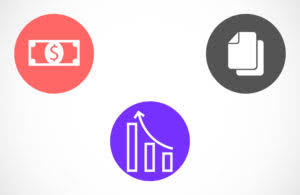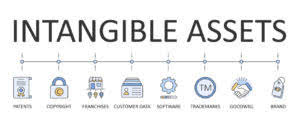Content

Single-entry cash accounting will likely best serve very small and simple businesses. The detailed record of inputs and outputs this method produces is sufficient for creating the relatively simple tax returns that a small business needs to submit every year. A small business likely doesn’t have a need for more complex financial reporting. Small business owners tend to have an immediate, intimate view of the business’ health and profitability without needing to quantify them. Financial record-keeping is simply keeping records of all the financial transactions of your business, e.g., recording sales, entering vendor bills, and processing payroll.
- The key purpose of small business accounting is to answer the question, “Am I making any money?
- A small business likely doesn’t have a need for more complex financial reporting.
- To save time and space, consider an electronic storage system to file your data.
- With the information in your bookkeeping, you can focus on your short and long term goals.
- The Internal Revenue Service has established some basic record-keeping rules for tax documents.
Measure worked hours on the part of all salaried and hourly employees, using means which do not impact upon their workflow or morale. Do not use time tracking to penalize employees–unless you suspect deliberate fraud–but rather for general efficiency measures. The Ascent is a Motley Fool service that rates and reviews essential products for your everyday money matters. IRS and Department of Labor record retention mandates vary between two and six years, depending on the document.
Does My Business Need a Seller’s Permit?
The best thing to do is speak with an accountant or tax professional who can help you create a record retention plan that fits your specific business and filing requirements. Use bookkeeping services or software to track trends you’re seeing from month to month, and think about how you’ll handle the upcoming month from a financial perspective.
Bookkeeping can help your company track various categories of expenses and income. With your bookkeeping needs, it may be wise to consider reaching out to an accountant. Don’t hesitate to seek advice from the experts to guide your small business through this global crisis.
Accounting Systems
For example, if over the course of the month your cash account has had $3,000 in debits and $5,000 in credits , you would adjust the cash account balance by a total of $2,000 . Proper bookkeeping ensures you’re always on top of your business’s finances, which enables you to make wise financial choices that can help you grow your business. This is simply the money or other assets which personally belong to you as the owner and not the actual profit you generate from your business or self-employment.

Small businesses just starting out need to keep their records as accurately as any business, but they may not have the funds to hire a bookkeeper. Luckily, doing your own bookkeeping is usually not too difficult.
Business bookkeeping basics FAQ
Master the accounting basics by making record-keeping part of your small business bookkeeping. The software should also automatically help you with the bookkeeping basics, like recording accounts receivable when you bill a customer.
- Current employee files should be retained for at least seven years after an employee leaves, is terminated or retires.
- For example, if you have a sole proprietorship, your business taxes are paid as part of your personal income tax known as “pass through” taxes.
- The tax guide usually focuses on personal tax, but this article summarizes the tax implications of employee business tax.
- Bench offers affordable outsourced bookkeeping services for your Shopify store.
- These are things like articles of incorporation, business licenses, partnership agreements, and any signed contracts.
- You’ve created your set of financial accounts and picked a bookkeeping system—now it’s time to record what’s actually happening with your money.
Now that you’ve balanced your books, you need to take a closer look at what those books mean. Summarizing the flow of money in each account creates a picture of your company’s financial health. You can then use that picture to make decisions about your business’s future.
Should Long-Term Care Insurance Be Part of Your Financial Plan?
People can’t know what health issues await them, but it’s pretty certain that if they live long enough, they’ll need some form of long-term care. This article suggests considering the option of long-term care insurance to avoid being caught without the needed resources in the event of a catastrophic, long-term health event. One of the most common ways to fund these kinds of ventures is through financing, specifically debt financing. To effectively use debt, you need to understand covenants, which may be included in the loan agreement. Not only that, Bitrix24 has CRM dashboards that primarily allow salesmen to stay on top of their accounts at a single glance. And make no mistake – inputting financial information manually can be tedious and time-consuming. On a monthly basis, you should be looking at your business as a whole to understand how things are going and to get a feel for the bigger picture.
- Include a comparison with the same report information from last month with each report.
- You can find free templates online, but as your business gets more profitable—or more complicated—you’ll need to consider working with a professional to manage these documents.
- Let software lead in creating small business accounting records, like customer invoices and payroll tax forms.
- Many or all of the products here are from our partners that pay us a commission.
- According to the Internal Revenue Tax Code, you must keep your records as long as they may be needed for the administration of any part of the tax code.
- So while the IRS can technically go back further than 10 years, it’s unlikely that they will.
With good bookkeeping services or software, you can streamline data entry, create detailed financial reports, consolidate data, and automate record keeping. It’s also an easy way to improve accuracy across your business and eliminate time spent doing repetitive tasks. Whether you are using an accounting software program or a manual Excel spreadsheet, it is important to know what types of records you should keep. To track your business transactions appropriately, you should keep any receipts that will substantiate your operating expenses, gross sales receipts, and vendor purchases.
Record the Information to Save It
As a small business owner, you are responsible for keeping accurate records for all of your employees. This includes maintaining accurate records of their hours worked, as well as their compensation and benefits. Employment tax records should be kept for bookkeeping for small business the duration of each employee’s tenure with your company. In the event that an employee is terminated, their records should be kept for at least three years. This will ensure that you have all the necessary documentation in the event of a dispute.

Record every payment you make and all the money that comes in, even if a client reimburses you or it’s just a dollar you found on the sidewalk. The short answer is yes, the IRS can go back more than 10 years when it comes to business tax records. In fact, there is no statute of limitations when it comes to federal taxes. This means that the IRS can audit your business tax records at any time, regardless of how far back they date. However, the IRS typically only audits businesses for the last three years.
Keeping Records for Tax Purposes
Bear in mind that, in the world of bookkeeping, an account doesn’t refer to an individual bank account. Instead, an account is a record of all financial transactions of a certain type. It requires you to record each financial transaction just once in your overall bookkeeping record. This method can work for freelancers or sole proprietors with no more than one or two business transactions a month. Bookkeeping is the process of recording your business’s financial transactions so that you know exactly how much you’re making and where your money is going. Take the simple step of setting yourself a reminder so that you have enough time well beforehand to fill out your tax returns without any mistakes.
Why Pareto Principle does not work?
“The Pareto principle … states that, for many events, roughly 80% of the effects come from 20% of the causes.” While this makes a great sound bite, it's hard to pin down exactly where the Pareto Principle should be applied – and where it shouldn't.